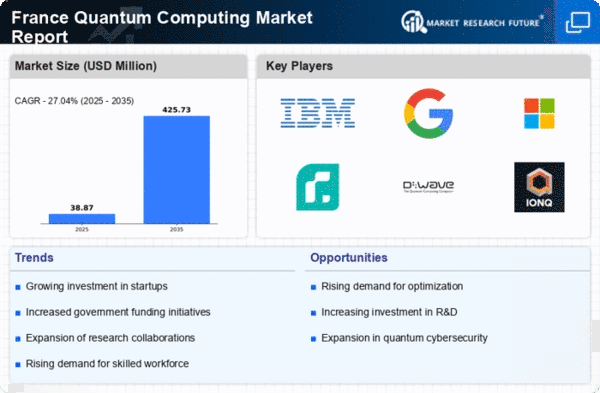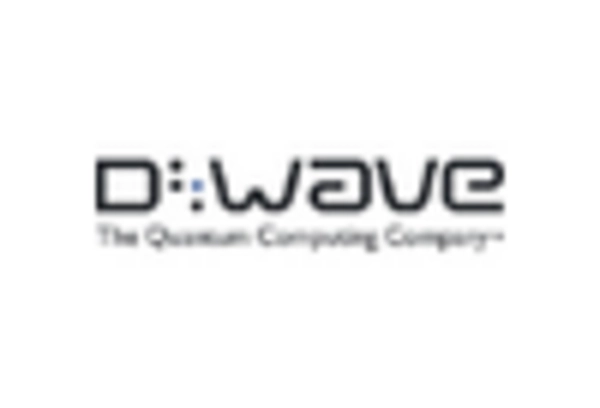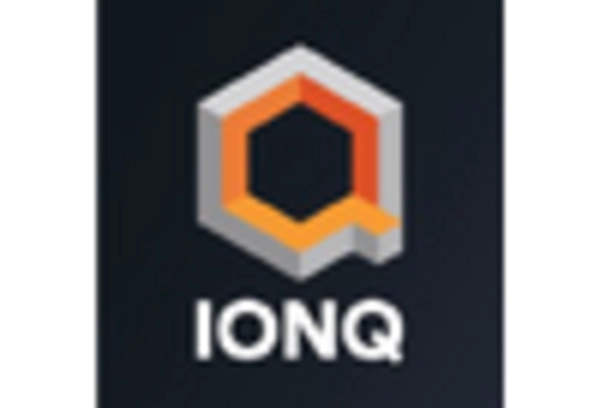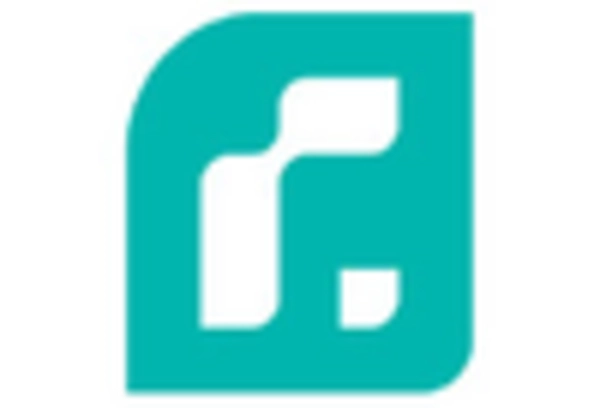Strategic Partnerships and Collaborations
Strategic partnerships and collaborations are becoming a cornerstone of the quantum computing market in France. Companies are increasingly joining forces with academic institutions and research organizations to leverage expertise and resources. For example, partnerships between tech firms and universities facilitate the development of quantum algorithms and hardware. This collaborative approach not only accelerates innovation but also enhances the overall ecosystem surrounding quantum technologies. As of 2025, it is estimated that collaborative projects account for nearly 40% of all quantum computing initiatives in France. Such alliances are likely to foster a more robust quantum computing market, enabling faster advancements and broader applications across various sectors.
Government Policies and Regulatory Frameworks
Government policies and regulatory frameworks play a pivotal role in shaping the quantum computing market in France. The French government has implemented various initiatives aimed at promoting research and development in quantum technologies. For instance, the National Quantum Strategy outlines funding allocations of approximately €1.8 billion over the next five years to support quantum research and innovation. These policies not only provide financial backing but also create a conducive environment for startups and established companies to thrive. As a result, the regulatory landscape is evolving to accommodate the unique challenges posed by quantum computing, which may further stimulate growth in the market.
Rising Demand for Advanced Computing Solutions
The quantum computing market in France is experiencing a notable surge in demand for advanced computing solutions. Industries such as finance, pharmaceuticals, and logistics are increasingly recognizing the potential of quantum computing to solve complex problems that classical computers struggle with. For instance, the financial sector is exploring quantum algorithms for risk analysis and portfolio optimization, which could lead to more efficient trading strategies. According to recent estimates, the market is projected to reach approximately €1.5 billion by 2026, reflecting a compound annual growth rate (CAGR) of around 25%. This growing interest indicates that businesses are actively seeking innovative technologies to enhance their operational capabilities, thereby driving the quantum computing market forward.
Growing Interest from Startups and Entrepreneurs
The quantum computing market in France is witnessing a burgeoning interest from startups and entrepreneurs. This influx of new players is indicative of a vibrant innovation ecosystem that is eager to explore the possibilities offered by quantum technologies. Startups are focusing on niche applications, such as quantum cryptography and optimization problems, which could revolutionize various industries. As of November 2025, it is estimated that the number of quantum computing startups in France has increased by over 30% in the past two years. This trend suggests that the market is becoming increasingly dynamic, with fresh ideas and solutions that could reshape the landscape of quantum computing.
Increased Investment in Research and Development
Investment in research and development (R&D) is a critical driver of the quantum computing market in France. Both public and private sectors are channeling substantial resources into R&D initiatives aimed at advancing quantum technologies. In 2025, it is estimated that R&D spending in the quantum computing sector will exceed €500 million, reflecting a growing recognition of the technology's potential. This influx of funding is likely to accelerate breakthroughs in quantum hardware and software, thereby enhancing the competitiveness of the French quantum computing market. Furthermore, increased R&D efforts may lead to the emergence of innovative applications, further expanding the market's scope.
















